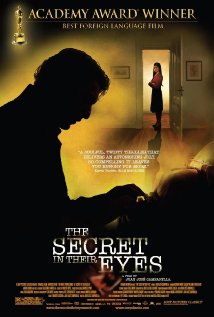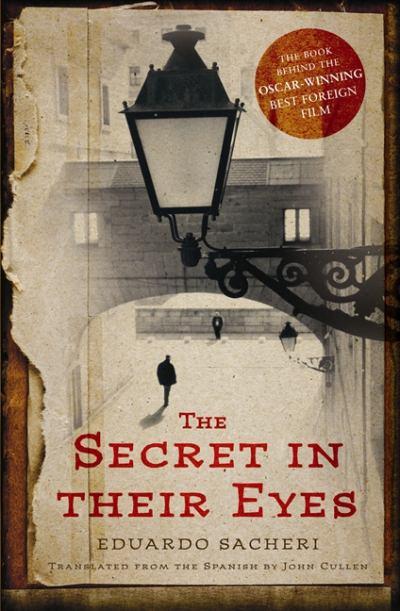Films are often based on books, but as a rule films simplify books. A novel of 400 pages is reduced to a screenplay of 60-80 pages or less. Minor characters are deleted, background events glossed over, and the context is muted, if not altogether blanked out, to focus on two or three protagonists. As a reader I have generally found the novel much better than the film that claims to be based on it. There are exceptions and I saw one recently. ‘The Secret in their eyes’ (2009) is from Argentina. To read all about it go to the Internet Movie Data Base. (The tools to insert hyperlinks, bolding, and so on remain off-line.)
 

It is long at 129 minutes and has a surprisingly high score on IMDB of 8.2. It is well deserved. I read the novel some time ago and my notes (yes, I keep notes about the novels I read) speak of a lack of tension, the icy detachment of the central character, underdevelopment of the judge … concluding that I will not bother to read any more by this writer. Oops! I must have missed quite a lot, because this film follows the book’s plot closely and it is a revelation.
On the surface it is a police procedural with a exotic setting: Argentina during the Dirty War of the 1970s. That is why I read it. Though my notes also say that the Dirty War is never mentioned and there is only one character who seems to have anything to do with it. While that is literally true, the film unmistakably communicates the repression of the society, when even tying a shoe is suspicious, when it is far better not to know than to know … that secret.
Since most of the film is about files, judicial processes, and the writing of a novel an archaic Olivetti typewriter is where much of the action occurs. The lead is Benjamin Esposito. See the film poster above. While there are two murders, each brutal, the tone is, apart from those punctuations, contemplative and inward. The greatest tension in the film is the elevator ride in the devil’s lair. Nothing is said. But when the doors open the judge is gasping for breath and Benjamin is as pale as a ghost. See it!
For action fans there is one incredible scene at a soccer match that leaves one wondering how it was filmed, but filmed it was, not computer magic. The production and direction are supremely confident and fluid in this scene as throughout.
Espositio’s associate Pablo Sandoval also deserves a word. He is played by Guillermo Francella to a T. Sandoval is slovenly, disorganized, reckless, persistent, noble, and — at times — creative. It is his constant study of the files that produces the insight which both resolves the plot and states the meaning of the exercise. No one can change who he is. (Yes, no doubt the Word Police will pounce on that rendering as sexist though it is an accurate description of the point in the story, and it does not mix singular and plural.) Gomez is a fan of Racing soccer club and remains that even when he is on the run. Esposito is hopelessly and wordlessly in love with the judge and has been since the first moment he saw her. Sandoval is a nerd.
What I did not get from the book by Eduardo Sacheri, ‘La Pregunta de sus ojos’ (2005), which by the way I take to mean ‘The question of her eyes,’ is the parallels between the two, intersecting cases of love at a distance.

But thanks to the players and the pacing that gives priority to looks, pauses, and hesitations, it becomes clear first to the viewer and then to the protagonist Benjamin. His unspoken love for the judge is very like the love Isidore Gomez had for his victim, and like Isidore he is incapable of expressing it in a positive way. Or is he? On several occasions the damn he has built around his emotions seems about to burst, but it holds, until a delightful, if incredible, last scene when the judge says, with characteristic understatement, ‘It will be complicated.’
Pedants note. The novel, in editions after the film, has been retitled to match the film.
Conclusion? I will re-read the book, and I suggest that others might do both, read the book and see the film. What is that secret? I think I know. We each have to find it for ourselves.
SBS late night movies has once again given us a gem.
The dean of film reviewers, Roger Ebert, gave it a glowing review. By the way, he is absolutely right about the judge. (As noted above, the hyperlink tool remains unavailable.)
Skip to content
